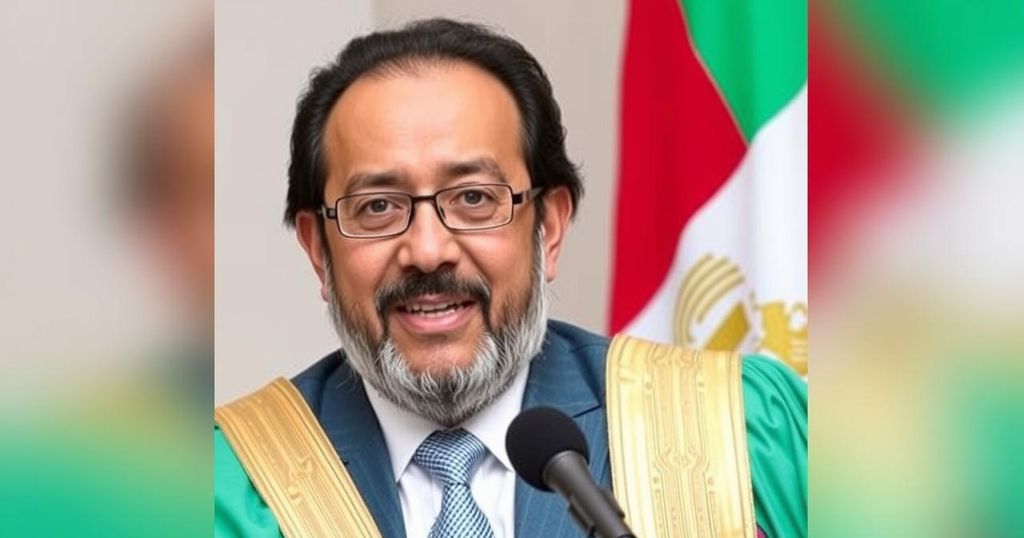President Hassan Sheikh Mohamud is set to visit Egypt to discuss his recent engagement with Ethiopian authorities. As Somalia navigates complex relationships between Egypt and Ethiopia amid disputes over the Grand Ethiopian Renaissance Dam, there are concerns regarding the coherence of its foreign policy. The visit aims to reaffirm Somalia’s diplomatic stance while addressing regional tensions.
Somalia’s President Hassan Sheikh Mohamud is poised to undertake a visit to Egypt imminently, as per credible sources reported by Garowe Online. This visit is expected to occur shortly after the president arrives back in Mogadishu. During his time in Cairo, President Mohamud is anticipated to update Egyptian President Abdel Fattah el-Sisi about his recent discussions in Ethiopia, particularly a significant meeting with Ethiopian Prime Minister Abiy Ahmed.
The longstanding tensions between Egypt and Ethiopia concerning the Grand Ethiopian Renaissance Dam (GERD) on the Nile River have placed Somalia in a delicate diplomatic position. It has been suggested that President Mohamud intends to foster friendly relations with both nations; however, officials indicate that both President Sisi and Prime Minister Abiy remain skeptical regarding Somalia’s influence in these discussions. In the past, Somalia had partnered with Egypt and Eritrea against Ethiopia, yet relations changed following the Ankara Agreement, which improved ties with Ethiopia after previous disputes over a maritime deal with Somaliland.
The Foreign Minister of Somalia is currently in Cairo, working to persuade Egypt that military conflict with Ethiopia is impractical, owing to Somalia’s limited military resources and its complex local political relationships. Mogadishu is now advocating for maintaining positive relations with Addis Ababa to counteract the earlier maritime agreement that Ethiopia reached with Somaliland.
Upon his reception in Addis Ababa, President Mohamud was warmly welcomed, with Somalia’s flag displayed prominently throughout Ethiopia’s capital, indicating a significant political moment. Nevertheless, this display of camaraderie has reportedly not sat well with authorities in Cairo, thus complicating diplomatic relations between the three nations.
Critics have begun to raise alarms over President Hassan Sheikh’s foreign policy, contending that it appears disjointed and primarily serves personal ambitions rather than articulating a coherent national strategy. Such perceived inconsistencies may expose Somalia to increased foreign interventions, which could pose a threat to its sovereignty and recovery from protracted conflicts. With both Egypt and Ethiopia eager for influence in Somalia, the fragile political context reflects wider geopolitical contests in the Horn of Africa.
The political landscape in the Horn of Africa is characterized by complex relationships, particularly regarding the interests of Egypt and Ethiopia in Somalia. The Grand Ethiopian Renaissance Dam has been a point of contention, and Somalia finds itself strategically positioned between these two countries. The recent Ankara Agreement signifies a shift toward improved relations between Somalia and Ethiopia, which once faced tensions due to territorial and maritime disputes. Understanding the historical alignment and the pressures of foreign policy in this region is crucial for grasping the challenges faced by Somalia’s leadership.
In summary, President Hassan Sheikh Mohamud’s impending visit to Egypt highlights the intricate dynamics of Somalia’s foreign relations within the context of Ethiopian-Egyptian tensions over the Nile. His administration faces challenges as it seeks to negotiate these relationships, advocating for peace while confronting skepticism from both Ethiopian and Egyptian leaders. The evolving geopolitical situation requires a clear and consistent foreign policy to safeguard Somalia’s interests and sovereignty amid competing influences from its neighbors.
Original Source: www.garoweonline.com






